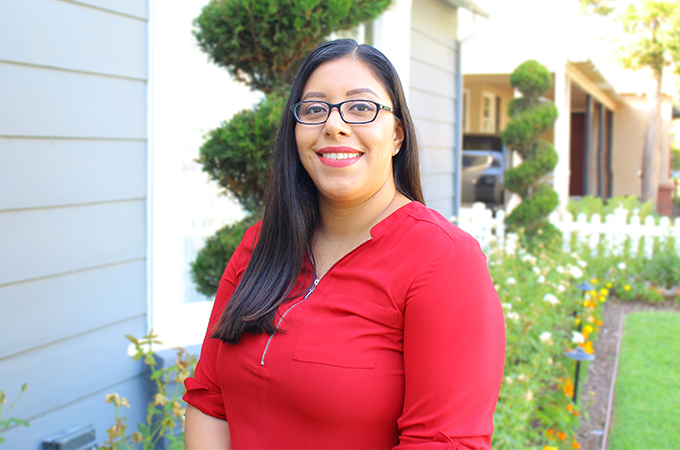As a career educator, Jessica Chavez ’19 knew it was time to take the next step toward advancing her education after working at Orange Country Educational Arts Academy (OCEAA) for nearly a decade. After looking at different graduate programs, she decided to enroll as a Master of Arts in Learning and Teaching (MALT) student at the University of Redlands School of Education, South Coast Metro campus.
As a positive behavior interventions and supports (PBIS) specialist at a small charter school, Chavez wears many hats. When asked what a normal day at work looks like, she laughs and says it doesn’t exist. “My job is basically a disciplinary role,” she says. “But sometimes I supervise traffic or help with lunch; other times I’m helping students with behavioral issues in their classrooms—there’s a little bit of everything.”
The purpose of employing a PBIS approach in a school is to establish a climate in which appropriate behavior is the norm. A large part of Chavez’s responsibility is encouraging students and spending time with them to work through the issues they may be facing both at school and at home.
As a behavioral specialist and student advocate, Chavez took a particular liking to an educational philosophy course she took at the U of R. “We examined the socialization and marginalization of students and focused on the social justice aspect of education,” she says.
Chavez’s studies have prompted a few personal revelations, including how her Latinx identity has played a large role in her educational experience. “I grew up as a student in the public school system, and I didn’t have many Mexican or Latino teachers,” she says. “I want to make sure that future generations of students have teachers who look like them.”
With a mission of nurturing all students and encouraging them to become creative, critical thinkers through arts-, technology-, language-, and culture-based instruction, OCEAA is a Spanish language dual immersion school. Dual language immersion promotes bilingualism and biliteracy, as well as cross-culturally competent students. Beginning in kindergarten, students attend classes taught 90 percent in Spanish and 10 percent in English.
“What happens over the course of students’ education in dual immersion is that classes are increasingly taught in English until they are taught 50 percent in English and 50 percent in Spanish, which usually happens in fifth grade,” says Chavez. “While our student base is largely Latino, we do have a growing population of non-Spanish speaking students.”
Chavez has kept her students in mind as she moves through her graduate studies, and looks forward to using the tools she has honed in the classroom. “I want students to know they can do more than what they’ve been told is possible,” she says. “I want them to believe that they’re capable of achieving anything.”
Learn more about the University of Redlands School of Education.






